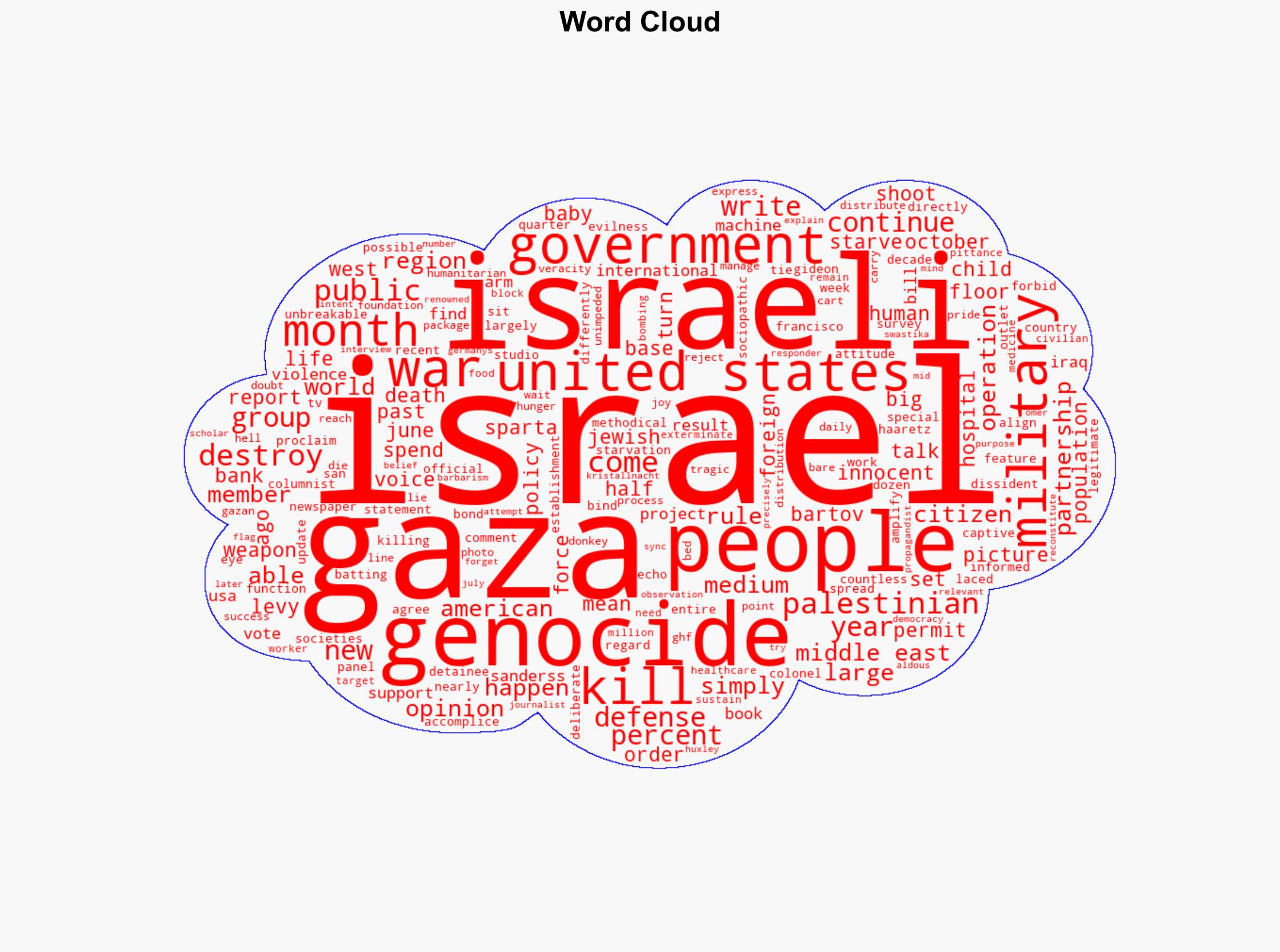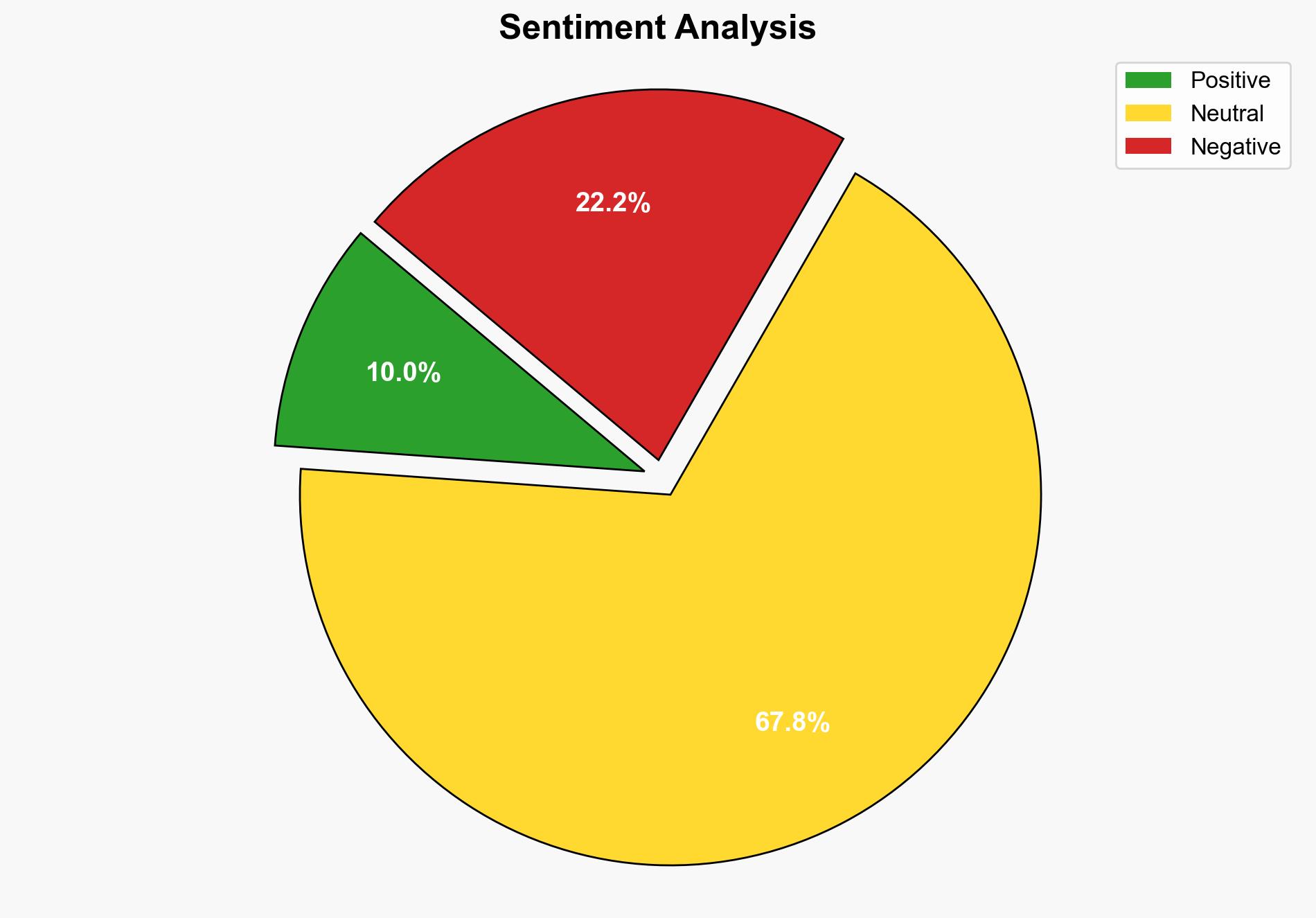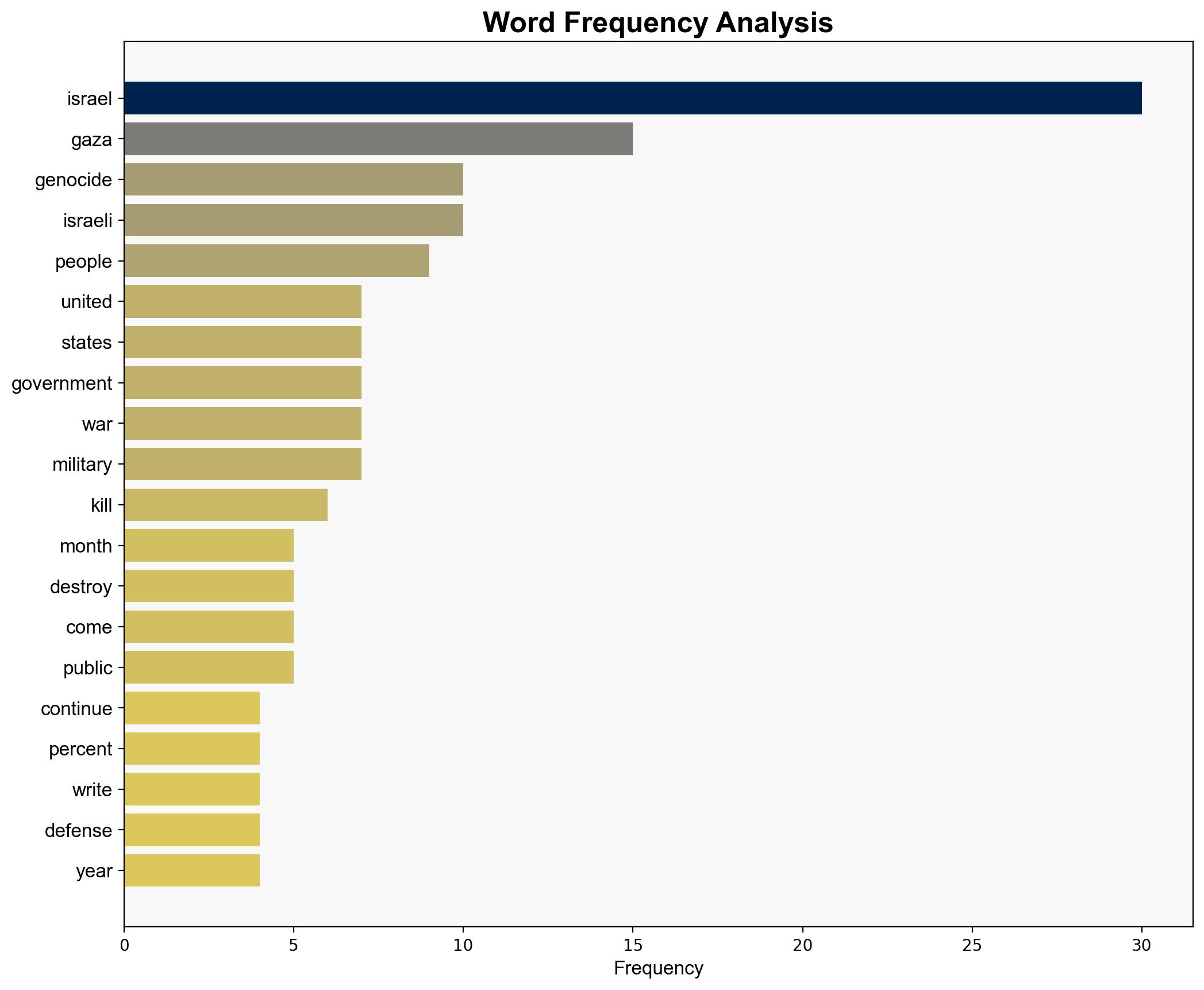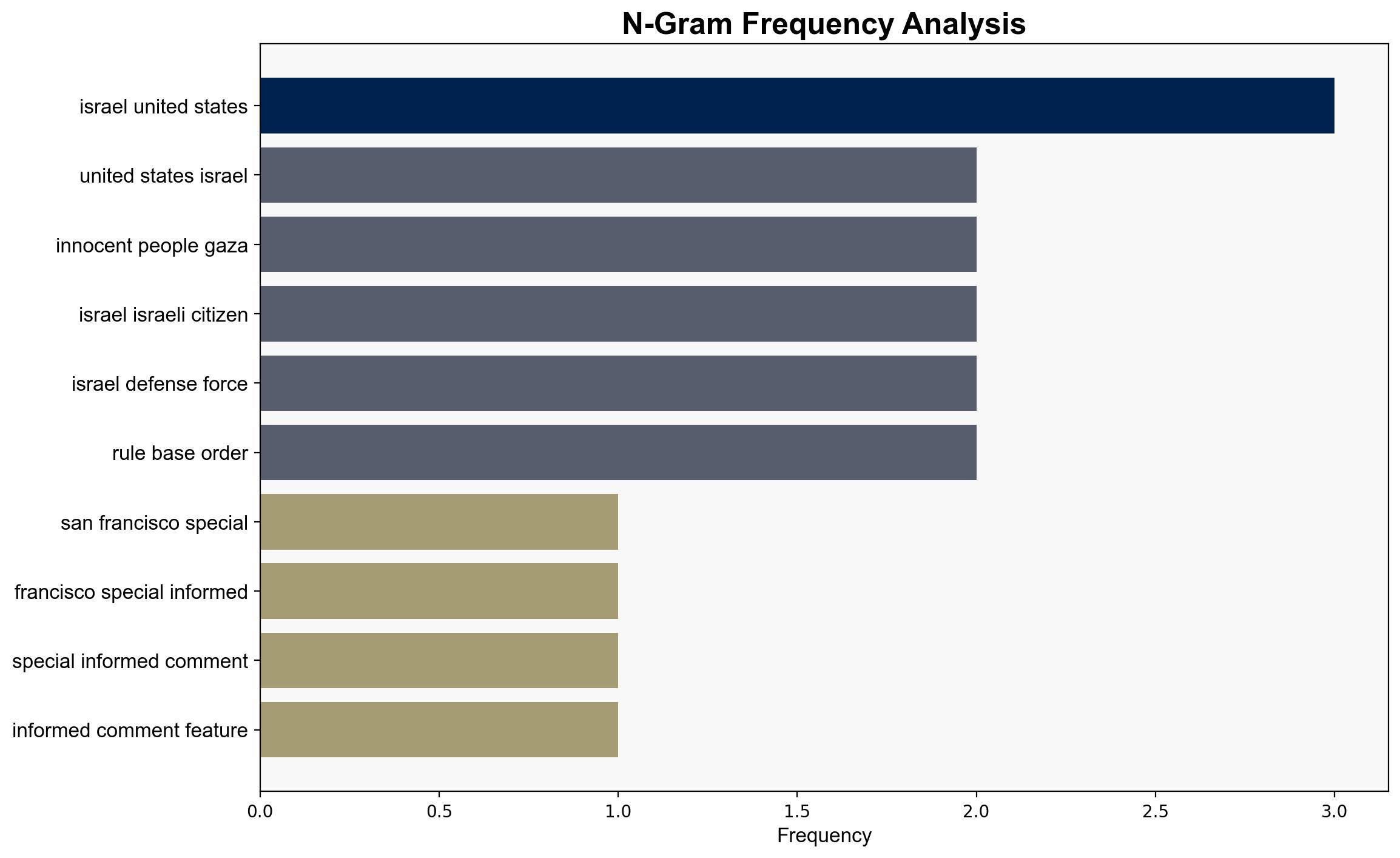The Genocidal Partnership of Israel and the United States – Juancole.com
Published on: 2025-07-29
Intelligence Report: The Genocidal Partnership of Israel and the United States – Juancole.com
1. BLUF (Bottom Line Up Front)
The analysis of the source text suggests two primary hypotheses regarding the relationship between Israel and the United States and their actions in Gaza. The most supported hypothesis is that the narrative of a “genocidal partnership” is a perspective driven by specific ideological viewpoints rather than a universally accepted fact. Confidence in this assessment is moderate due to the polarized nature of the topic. Recommended action includes promoting dialogue and fact-based assessments to mitigate potential misinformation and escalation.
2. Competing Hypotheses
1. **Hypothesis A**: The relationship between Israel and the United States constitutes a genocidal partnership, actively supporting and enabling actions in Gaza that amount to genocide.
2. **Hypothesis B**: The narrative of a genocidal partnership is an ideological interpretation that does not reflect the complexity of geopolitical and humanitarian dynamics in the region.
Using the Analysis of Competing Hypotheses (ACH) 2.0, Hypothesis B is better supported. The source text reflects a strong ideological stance, with language that may not align with broader international consensus or verified data.
3. Key Assumptions and Red Flags
– **Assumptions**: Hypothesis A assumes that all actions by Israel and the United States in Gaza are coordinated with genocidal intent. Hypothesis B assumes that the narrative is influenced by ideological bias.
– **Red Flags**: The lack of diverse perspectives in the source text and the reliance on emotionally charged language suggest potential bias. The absence of corroborating data from neutral sources is a significant red flag.
4. Implications and Strategic Risks
– **Patterns**: The perpetuation of a singular narrative can exacerbate tensions and hinder diplomatic efforts.
– **Cascading Threats**: Misinformation could lead to increased regional instability, impacting international relations and security.
– **Potential Escalation**: If the narrative gains traction without challenge, it could lead to further polarization and conflict.
5. Recommendations and Outlook
- Encourage independent investigations and fact-checking to provide balanced perspectives.
- Facilitate dialogue between conflicting parties to address grievances and reduce tensions.
- Scenario Projections:
- Best: Increased dialogue leads to de-escalation and humanitarian relief efforts.
- Worst: Misinformation fuels further violence and international condemnation.
- Most Likely: Continued polarization with intermittent diplomatic efforts.
6. Key Individuals and Entities
– Gideon Levy
– Omer Bartov
– Adam Shatz
7. Thematic Tags
national security threats, geopolitical analysis, media influence, regional conflict





